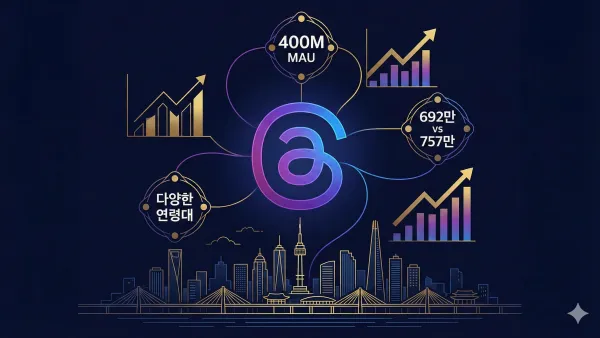Mencius’ Permanent Livelihood and Basic Income: A Declaration of Citizenship Beyond Subsistence
Over 2,300 years ago, Mencius spoke of “those with a stable livelihood have a stable mind.” Today, that idea meets the modern debate on basic income. Beyond mere subsistence support, basic income is being reframed as a new social contract rooted in citizenship.

“Those with a stable livelihood have a stable mind; those without a stable livelihood cannot have a stable mind.”
This aphorism from Mencius transcends 2,300 years and strikes at the heart of today’s fiercest socio-economic debates. Many cite it as justification for adopting basic income. Yet merely quoting it without probing the depth of the classic is risky. Mencius’ words are not a simple endorsement of basic income but a sharp reminder to examine its essence. Can modern basic income truly be the “permanent livelihood” Mencius envisioned?
1. Mencius’ “Permanent Livelihood” Is Not Just Subsistence
In today’s terms, Mencius’ “permanent livelihood” refers to a stable source of income that ensures survival. But its essence lies not in financial aid alone. Its core is creating conditions under which people can exercise moral agency and social responsibility based on economic stability. In Mencius’ thought, a “stable mind” is not a private inner virtue but the practical expression of supporting one’s family, contributing to the community, and sustaining social harmony.
Thus, “those without a stable livelihood cannot have a stable mind” is not an insult implying the poor lack morality. Rather, it’s an insight into structural reality: even the most virtuous people can lose the capacity for moral choice when faced with survival anxiety.
Here we see the difference between modern welfare programs and basic income. Most welfare schemes provide minimal aid to the poor but often tie it to surveillance and control—strict eligibility checks, usage restrictions, even stigma and shame. Such approaches entrench dependency instead of empowering recipients as full citizens with agency. In Mencius’ eyes, this is not “providing a livelihood,” but fostering dependency.
2. Unconditional Basic Income: Declaring Livelihood as a Right
Viewed through Mencius’ lens, a true permanent livelihood must be a social contract affirming personal agency and dignity, not just financial transfer. This is where unconditional basic income shines, offering a new model of livelihood in three dimensions.
First, basic income is a right grounded in citizenship. It rejects the paternalistic logic of “you’re poor and incompetent, so here’s help.” Instead, it declares: “As a member of this society, you deserve a share of the wealth created by collective cooperation and civilization’s legacy.” In the age of AI and automation, such wealth is not the product of any single person’s labor but a collective asset. Thus, basic income functions as a social dividend, distributed regardless of employment status or immediate productivity. Unlike traditional welfare funded by taxpayers for “others,” basic income redistributes the jointly created wealth we all helped build.
Second, basic income provides the foundation of freedom. To embody Mencius’ idea of a stable mind, people need the ability to say “no”—to abusive bosses, harmful jobs, or work that damages society. Unconditional basic income secures this freedom of refusal. It makes people the subjects of their own lives. It’s not merely subsistence but a lifeline that allows them to design their lives on their own terms. Some will use it to start a business, others to devote time to caregiving, still others to learn new skills. In this way, basic income realizes Mencius’ vision of moral and social practice grounded in stability.
Third, basic income fosters trust and social harmony. Mencius’ phrase suggests that instability breeds not only personal decline but also social distrust and conflict. When survival becomes a brutal competition, communities fracture. Unconditional basic income provides a minimum safety net for all, breaking the vicious cycle of distrust. When everyone enjoys basic stability as a right, they can redirect their energy toward cooperation. This forms the groundwork for the politics of benevolence Mencius envisioned—a harmonious community.
3. Global Experiments: Achievements and Limits
Finland: Modest Employment Gains, Clear Well-Being Benefits
In 2017–2018, Finland conducted the world’s first nationwide basic income experiment, giving 2,000 unemployed people €560 a month unconditionally. Often cited as a “failure,” the results were more nuanced. Employment days were six higher than the control group (78 vs. 73), a statistically significant difference. More importantly, recipients experienced reduced stress, improved mental health, and freedom from bureaucratic burdens. Especially after job-search obligations for unemployment benefits increased in 2018, the advantages of “no conditions” became even clearer.
Kenya: Building Independence in Extreme Poverty
Since 2017, the nonprofit GiveDirectly has been running a major basic income trial in Kenya, backed by $24 million from Silicon Valley firms like Facebook, Instagram, and eBay. Early results were striking. Beyond meeting basic needs, villagers launched small businesses: a group of sisters opened a microbank, and one man began a fishing business. This shows that basic income can seed self-reliance, not just consumption.
Alaska: 42 Years of Success
The longest-running example is Alaska’s Permanent Fund Dividend. Since 1982, it has distributed dividends from 25% of oil revenue. In 2024, the payout was $1,704 per person. A 2017 poll showed 79% of Alaskans consider it a key income source. Strikingly, while in 1984 only 29% said they’d pay income tax to preserve the dividend, by 2017 that figure rose to 64%. This reflects how deeply the dividend has become part of Alaskan life, seen as an asset too valuable to give up.
Sam Altman’s Trial: Scale Limits and Freedom of Work Choice
From 2019–2022, OpenAI CEO Sam Altman funded a three-year experiment, paying $1,000 monthly to 1,000 of 3,000 participants. Results were mixed: it provided short-term stability but work hours dropped 2%. Rather than laziness, this reflected people exercising choice—many devoted time to caregiving, education, or preparing for entrepreneurship, activities not valued in the market but socially meaningful.
4. Funding Basic Income: From Theory to Policy
The toughest obstacle is financing. Yet the Fourth Industrial Revolution makes new revenue sources possible.
- Robot tax: Supported by Bill Gates, Elon Musk, and Mark Zuckerberg, this tax would collect a share of value created by automation for redistribution.
- Land value tax: A 0.5% tax on Korea’s privately held land (worth about ₩7,000 trillion in 2020) could raise nearly ₩29 trillion. Since land is a collective asset, this fits basic income’s philosophy.
- Carbon tax: At ₩38,000 per ton of CO₂ (2018 levels), Korea could raise ₩27.6 trillion while fighting climate change.
- Digital tax: Taxing value generated by platforms like Google, Facebook, and Amazon from user data would return wealth to society as dividends.
5. Mencius’ Warning: Preventing Dependency
Mencius also warns that unconditional support risks creating dependence. To avoid fostering idleness, basic income must follow three principles:
- Self-reliance: It should empower, not encourage permanent withdrawal from work. Payments must cover basic survival but still require additional activity (work, entrepreneurship) for a richer life.
- Community: Mencius valued family and communal harmony. Basic income should reinforce solidarity—via local currencies, incentives for community projects, etc.—not pure individualism.
- Future orientation: If land was livelihood in Mencius’ time, today it is data, tech, and knowledge. Funding basic income from intangible assets like AI-driven wealth is crucial. This isn’t just policy but a new social contract for the digital era.
6. A Korean Path: Gradual and Tailored
For Korea, basic income must fit local realities.
- Step 1 – Youth Basic Income: A 2021 pilot in Busan gave young people ₩1 million monthly for seven months, enabling them to pursue writing, art, sports, and caregiving. Expanding youth programs could be a first step.
- Step 2 – Regional Pilots: Conduct trials in areas like Jeju or Gangwon Province.
- Step 3 – National Rollout: Scale nationwide based on lessons learned.
Integration with existing welfare is key. A simulation by the Korea Institute of Public Finance showed that replacing all welfare with basic income could hurt the poorest. Thus, basic income must supplement, not replace, current programs.
7. Addressing Criticism
- “It kills work incentives.” Altman’s trial showed only a 2% drop in work hours, offset by socially valuable activities. The real question is not “is all work valuable?” but “what kinds of work truly matter?”
- “It causes inflation.” While mass cash transfers may spark inflation, Alaska’s 42 years show moderate payouts do not. Scaling should be gradual with close monitoring.
- “Funding is unrealistic.” With robot, land, carbon, and digital taxes combined, significant funds are possible. The real barrier is political will, not technical feasibility.
8. Conclusion: Designing a New Livelihood Through Dialogue with the Classics
Mencius’ saying doesn’t give us easy answers. It challenges us: will basic income make people autonomous citizens with stable livelihoods, or dependent subjects with unstable minds?
Experiments worldwide suggest cautious optimism. Finland improved well-being, Kenya spurred independence, Alaska provided stability for four decades. These show basic income is no mere utopian dream but a workable policy.
Answering Mencius’ challenge requires elevating the debate beyond economics into philosophy and ethics. Basic income must be:
- a right-based payment that affirms citizenship,
- a freedom-granting payment enabling self-determination, and
- a dividend payment reclaiming collective wealth.
Moreover, in the age of AI and automation, basic income must anticipate the shift from valuing humans by productivity alone to embracing broader human dignity.
Through ongoing dialogue with the classics, we can design a new livelihood model suited to the Fourth Industrial Revolution—a model not just to help people survive, but to truly let them live.
At the intersection of data and philosophy, we can chart a better future. At the center of that blueprint lies basic income.




